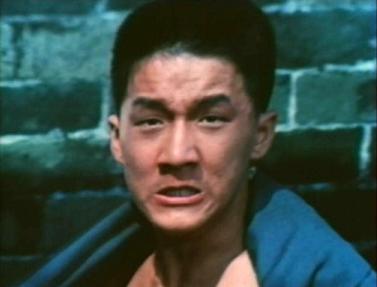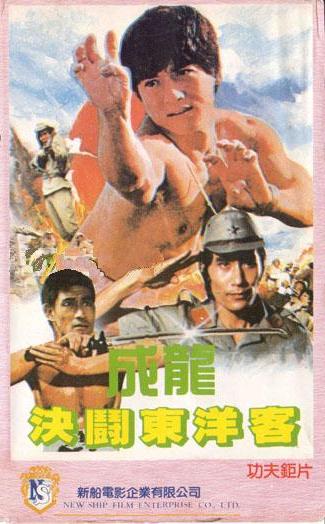
[THE CHALK-OUTLINE]
Ding tian li di (1973) a.k.a. Eagle Shadow Fist a.k.a. Fist Of Anger: Breakdown by Kain424
A couple circus performers create a minor resistance in Japanese-occupied China during World War II.
[THE EXECUTION]
Eagle Shadow Fist is a small film featuring a few members of the China Drama Academy. With almost no budget to speak of, the movie tries to entertain with fight scenes and a traditional sense of morality. Their homeland invaded by Japanese bullies, the poor Chinese struggle to survive. Only a couple of circus runaways are willing to stand up against the Japs, using traditional kung fu.
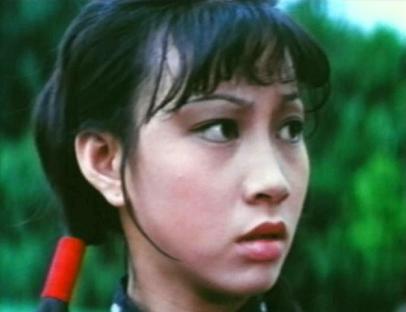
There’s really not much to be said about this film. A short-haired Jackie Chan shows up, though not as the main character, and dies before too long. Qiu Yuen also appears, but doesn’t fight. The movie is shot in a boring, static manner with frequent 70s zooms, and even though the opening tells us it is based upon true events, the story is rather weak. Most of the latter is focused on an inner conflict between the characters over whether they should hide or fight. Add to that some of the most unbearable music from the time, and you’ve got a recipe for, well not disaster, but certainly boredom.
The Chinese are shown as living in a state of terrible poverty, with the Japanese sending out gangs of hooligans to beat the rural citizens into paying taxes and favors. Our heroes begin the film by fighting off a small squad of Japanese soldiers that attack their Chinese opera or circus group. They then proceed to spend the rest of the film hiding out among in the slums of destitute China. With the poor surroundings, plodding narrative, and unengaging lead, Eagle Shadow Fist winds up feeling depressing and pointless. Indeed, the ultimate goal of the main characters is to escape the land they’re in, build a resistance and return to fight. Since nearly everyone is dead by the film’s end, it just feels like everything was a waste of time. Perhaps they should have just waited it out.
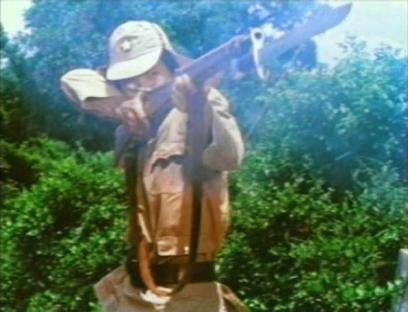
The one slightly redeeming factor of the film is its fights. The effective use of blood and makeup on the fighters distracts from some of the poor sound effects, but what really stands out is the occasional good cinematography. There are a few decent shots of characters fighting against the light of a sunset and on a mountainside. Still, this hard to find film is not really worth looking for. Chan fans will be disappointed that, despite being a far better martial artist than the protagonist, he is sidelined for much of the movie. Occasionally found as a free offering in Jackie Chan sets, Eagle Shadow Fist is ultimately too bland to be worth the short amount of time it runs.
[HOW BAD-ASS ARE THE MAIN CHARACTERS?]
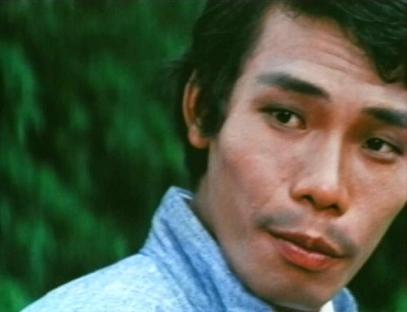
Hao Li is Tang
Tang is a wandering blank slate of a human being. Aside from his kung fu abilities and the occasional help he gives to others, Tang has no personality of his own. Despite watching this film twice now, I am still at pains as to understanding his motivations. Oh well.
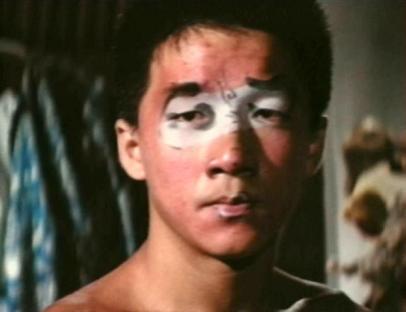
Jackie Chan is Si To
Si To is an optimistic, tenacious little sprite with impressive acrobatic abilities. His one desire is to convince those around him to oppose their oppressors with force. He openly advocates violent action while remaining a nice guy, even after intense water torture. He is a friend to the end.
[THE BODY COUNT: 23]
For its genre and for its era, this is an incredibly violent film. Of the 23 deaths in the movie, only one is from a gun. Most of the people that die are actually beaten to death, bludgeoned or die from broken necks or spines. We also get stabbings, stompings and choppings with swords. Blood flows in this one, and lives are ended abruptly.

Still, some of the deaths come off as almost goofy, and when a dummy is used it’s pretty obvious. But given the movie’s clear lack of budget, I’d say it’s admirable they were able to do what they did here. The effects work most of the time, and the performances actually sell the pain. Hao Li comes off looking pretty bad-ass by the end of the flick, killing around five or six with his bare hands. Jackie even kills a man.
[MOST SATISFYING ASS-KICKING & DEATH]
The Final Fight
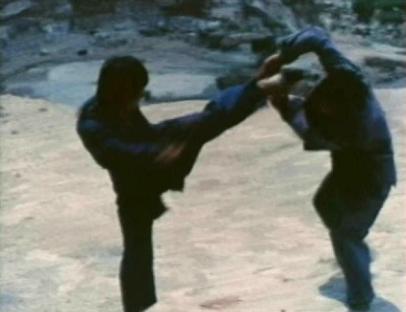
Hao Li and the Japanese’s best fighter battle from the top of a mountain, down to a lake, and then back up a mountain again in one of the longest fights I have ever seen. These two fight FOREVER! They fight for over ten solid minutes. It’s fucking ridiculous. I thought it was some sort of metaphor for the age old rivalry between China and Japan until Li took out the other guy’s eyes.
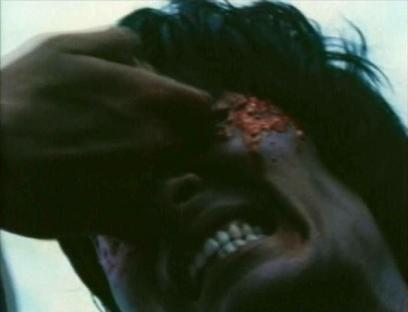
The guy still flails about, blind and bleeding, until he gets kicked off a cliff. Very violent. It’s a pretty abrupt ending too, especially for a fight that took ten minutes. Was he just toying with him the whole time? I guess we’ll never know.
[MOST SATISFYING DEATH]
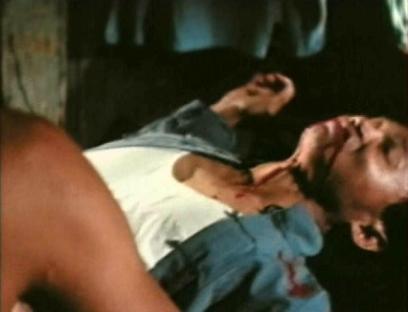
I really enjoyed the last guy’s demise, but it was Jackie Chan beating a man to death in the opening moments of the film that pulled me through the rest of the movie. After they’ve endured enough bullying, the Chinese performers resist, essentially dodging bullets to beat down their oppressors. Chan gets a hold of one poor fellow and rails on the guy, hitting him repeatedly in the throat and chest until he begins coughing up blood and dies.
[DUDESWEAT AND MACHISMO]
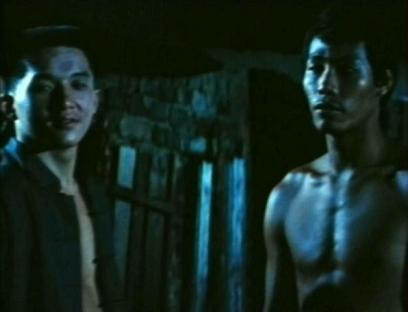
Other than the goofy geisha make-up our heroes open the film wearing, there isn’t too much gayness to speak of here. The two main characters hang out shirtless together a bit, but both seem actively interested in the opposite sex. Oh well.
[EXPLOITATION AND MISOGYNY]
Why they bothered putting martial artist Qiu Yuen in a film and never have her fight anyone may be one of the great mysteries of Chinese cinema. In fact, the women of Eagle Shadow Fist seem to largely serve as either rape-bait of typical damsels in distress.

There’s an unintentionally funny moment where a woman stumbles upon the villains beating people senseless and shoves one of the bad guys off his victim. He glares at her, lustfully.
“Seems he’s interested,” another thug tells her. “You should be honored.”
Very nice, China.
[EPIC MOMENT AND BEST ONE-LINER]
The best moment occurs at the end. What’s left of the resistance is waiting out in the wilderness near a lake for Tang to arrive to take them all to safety. Seeing a figure approaching them in the distance, one man runs out screaming for Tang. Instead of Tang, however, it is one of the main villains. And now their cover’s been completely blown, with the villain smiling about the whole thing like he’s getting his vacation picture taken.
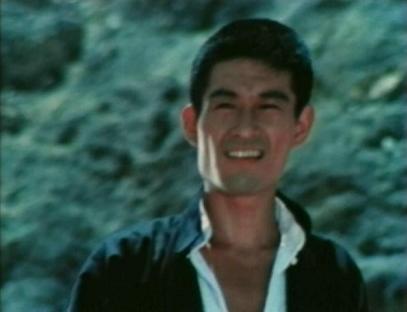
After dragging Qiu Yuen to his captain’s quarters, one nasty little sub-boss approaches his superior with this sleazy little entendre:
“Captain. In this case, personal interrogation. Eh?”
[THE MORAL OF THE STORY]
Is the sacrifice of all your family, friends, wealth, and food worth freedom from an oppressive government that isn’t the one you grew up in? You decide.
[THE GIST OF JACKIE: 1 outta 5]
[ ] Breaks Into Someplace Or Escapes By Way Of Acrobatics
[ ] Has An Annoying Tag-Along Companion
[X] Makes The ‘OW!’ Face And/Or Rubs A Soar Spot
[ ] Performs A Ridiculously Dangerous Stunt
[ ] Uses A Random Object To Defend Himself
[THE CHECKLIST: 09 outta 25]
[X] Athlete(s) Turned “Actor”
[ ] Clinging To The Outside Of A Moving Vehicle
[X] Crotch Attack
[ ] Dialogue Telling Us How Bad-Ass The Main Character(s) Is/Are
[ ] Ending Featuring An Ambulance, A Blanket or A Towel
[ ] Factory/Warehouse
[ ] Giant Explosion(s)
[ ] Heavy Artillery
[ ] Improvised Weapon(s)
[ ] Macho Mode(s) Of Transportation
[ ] Main Character Sports Facial Accessory(s)
[ ] Manly Embrace(s)
[ ] Notorious Stunt-Man Sighting
[ ] Passage(s) Of Time Via Montage
[X] Politically Fueled Plot Point(s)
[X] Senseless Destruction Of Property
[X] Shoot Out(s) and/or Sword Fight(s)
[X] Slow-Motion Finishing Move(s)/Death(s)
[X] Stupid Authoritative Figure(s)
[ ] Substance Usage and/or Abuse
[ ] Tis The Season
[X] Torture Sequence(s)
[ ] Unnecessary Sequel
[ ] Vehicle Chase(s)
[X] Vigilante Justice
